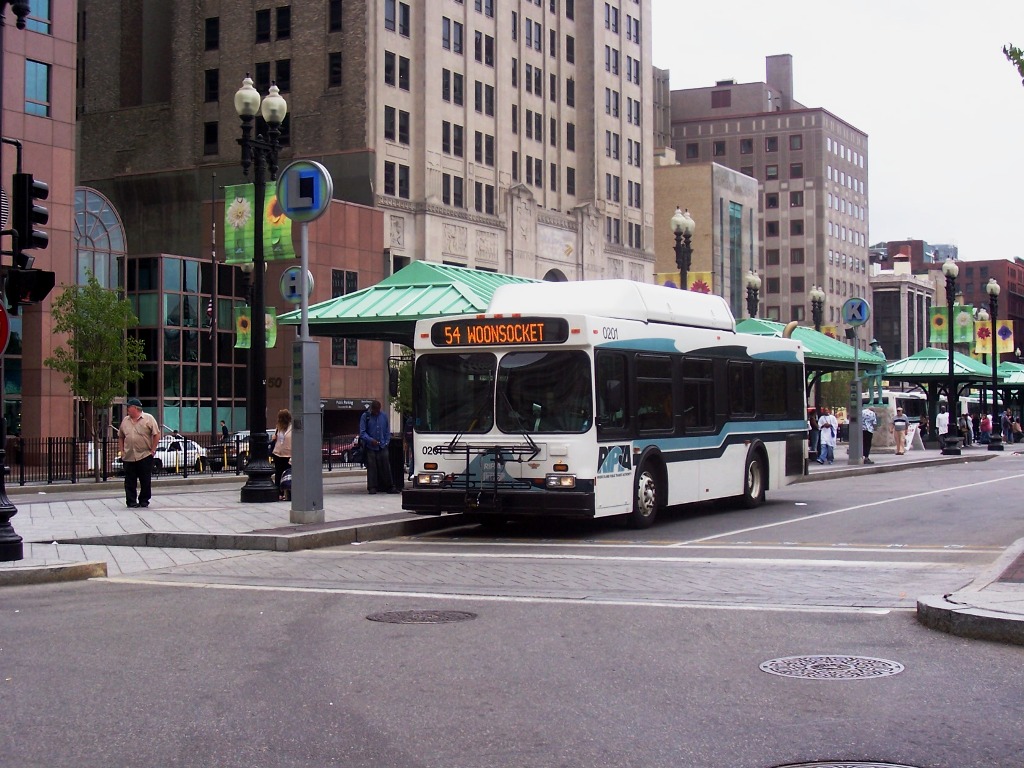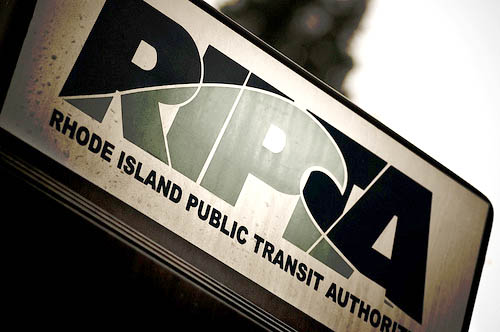 In March, the RI Public Transit Authority (RIPTA) raised their monthly pass price from $62 to $70, a transfer from $.50 to $1, eliminated the discounted 15-ride $26 pass, but kept the basic $2 one-state rate, whether you ride for just two stops or all the way from Westerly to Providence.
In March, the RI Public Transit Authority (RIPTA) raised their monthly pass price from $62 to $70, a transfer from $.50 to $1, eliminated the discounted 15-ride $26 pass, but kept the basic $2 one-state rate, whether you ride for just two stops or all the way from Westerly to Providence.
These fares, paid mostly by hard working low income working people, were already well above average. Last summer a survey of 21 reasonably comparable bus systems found average basic fare of $1.60, average transfer only $.09 (many had free transfers) average monthly pass $49. Most had zones where there were higher fares for longer or express rides and many had no-fare or low-fare downtown shuttles. RIPTA abolished our low-fare “short-zone” over a decade ago.
High fares may be one reason our commute by transit rate here, noted by Governor Raimondo’s new transportation leadership, is barely half of what would be expected by our density. Thus RIPTA is far, far from living up to its potential to reduce congestion and pollution and to help fight climate change or to the rebuilding of our core cities and our economy. And now, they took a step backward by charging more to their most frequent and loyal riders that pay the fares.
One reason fares may be relatively high is the need for reasonable farebox recovery in light of the free rides for seniors and people with disabilities with incomes under twice the Federal poverty level. This free riding has grown to about 5.6 million rides a year, about 30% of all rides. It also contributes to the perception that our bus service is just for the poor that may make it harder to attract paying commuters, especially as buses can be overcrowded during peak hours. With deficits looming, last spring the legislature repealed the law prohibiting RIPTA from charging fares to the seniors and disabled, instead allowing up to half fare for those groups. Naturally those riding free wanted to keep their benefits so protests were organized resulting, as of now, that RIPTA will charge those groups 50 cents a ride, just 1/4 of the regular fare starting July 1 but still below the senior average of $.68 found in the survey. However, there are bills in the legislature that would restore the free rides, though they don’t add any funding to make up for the reduction in expected revenue.
Reflecting the decency of Rhode Islanders who want to help the poor, many groups support the continuation of the free fares. It certainly is a feel-good position and there are folks in dire poverty that really cannot afford additional expenditures. But there is another side to the story. Low income people on medicaid are eligible to still get free rides to any kind of medical trip including pharmacy visits. Twice the Federal poverty level is $31,860 for a couple, $48,500 for a household of four which may be more than some low income working people who pay full fare. Perhaps this threshold could be lowered to protect the very poor.
So what is a fair fare policy? My opinion is hold down fare increases for all passengers first by working to reduce RIPTA deficits through internal efficiencies and marketing promotions to attract more paying passengers. More state revenue should go for improving conditions for all passengers, such as keeping the Kennedy Plaza building open after 7pm when passengers now have to wait out in the cold and dark. Passenger revenue can be increased by higher fares on long distance express routes and charging the now-free riders half fare only during the peak hours, letting them ride free during the off-peak hours when more space is available. This can help raise revenue to keep the system going, make more space available to help attract more commuters while keeping a safety net for the poor.

